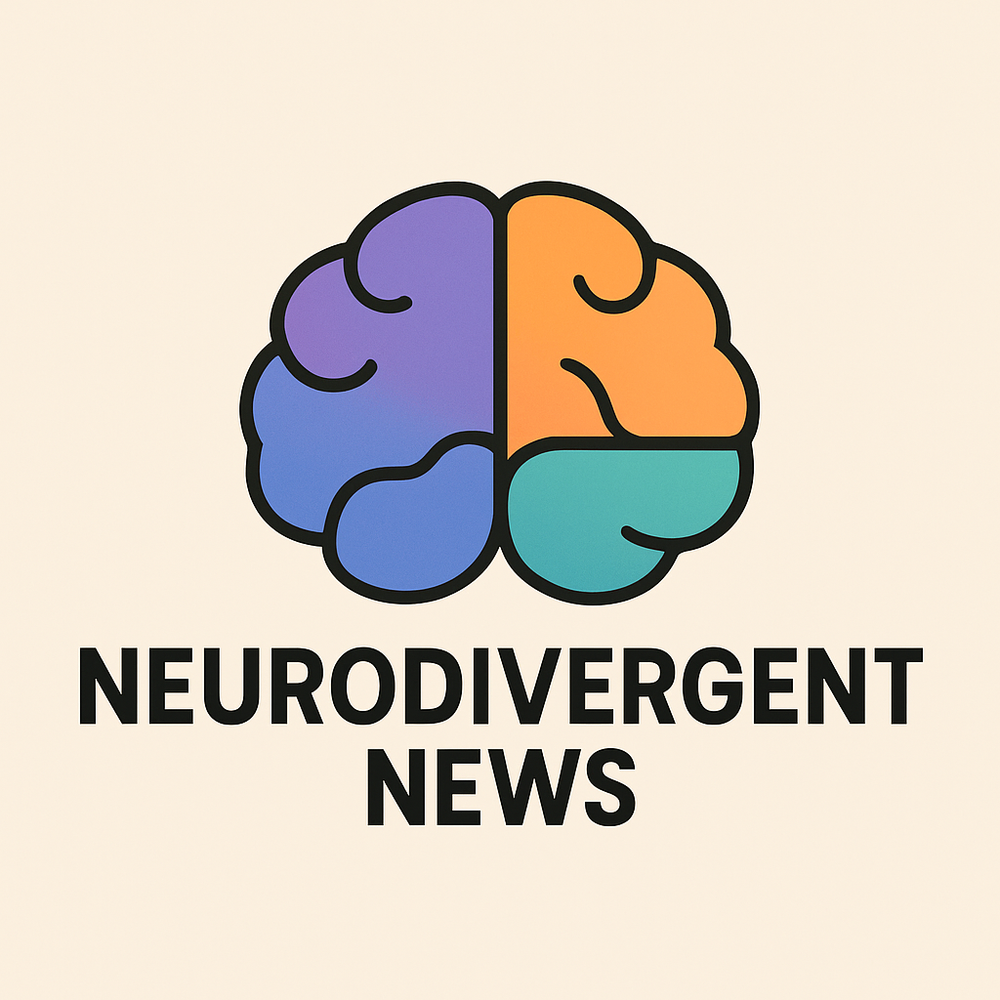Neurodivergent News Roundup: April 7–13, 2025
The past week has been a rich and meaningful one for neurodivergent individuals and their allies around the world. From nuanced portrayals in media to bold advocacy in politics, the global conversation around neurodiversity is becoming louder, more inclusive, and more informed. Here's a look back at the major highlights from April 7 to April 13, 2025.
🎬 Media Representation: The Pitt Highlights Authentic Neurodivergent Character
One of the week’s most talked-about TV moments came from the breakout hit The Pitt, a medical drama set in a fictional Pittsburgh hospital. The finale of Season 1 gave viewers a deeper look at Dr. Melissa “Mel” King—a young, brilliant surgeon portrayed by Taylor Dearden. Mel displays behaviors and thought patterns associated with autism and ADHD, including difficulties reading social cues, a preference for structure, and moments of hyperfocus.
What sets this portrayal apart is its authenticity. Dearden, who is neurodivergent herself, brought lived experience to the role and worked closely with consultants to make sure Mel’s character wasn’t reduced to stereotypes. Rather than slap on a diagnostic label, the writers chose to reflect the complexity of real-life neurodivergence by letting viewers interpret and relate to her in their own ways.
Fans and advocates praised the show for breaking away from the usual “eccentric genius” trope and instead offering a grounded, respectful portrayal of a neurodivergent woman navigating a high-stress career.
🏛️ Political Advocacy: San Francisco Leader Shares Autism Diagnosis in Support of City Programs
In a powerful moment of vulnerability and leadership, San Francisco Supervisor Bilal Mahmood publicly shared his autism diagnosis while presenting a resolution to designate April as Autism Awareness Month in the city.
Mahmood emphasized the growing need to support neurodivergent people—especially children and adults who rely on educational, mental health, and community services that are often the first to be targeted by budget cuts. “I would not be where I am today without the support I received,” he said during a press conference. “But many in our community still don’t have access to what they need.”
His revelation struck a chord with constituents and advocates, who applauded his transparency. For many, it signaled a move toward more inclusive and compassionate policymaking rooted in personal understanding. The resolution is expected to pass with broad support, accompanied by initiatives to safeguard neurodivergent services from pending city budget reductions.
💼 Workplace Inclusion: Neurodiversity Summit 2025 Pushes for Real Change
Held virtually and in-person, the Neurodiversity Summit 2025 brought together employers, educators, and advocates to discuss how organizations can better support neurodivergent employees. The event featured panels, workshops, and keynote speeches covering everything from recruitment strategies to creating neuroinclusive workspaces.
A key theme? Accommodations shouldn't be reactive—they should be built into the very fabric of workplace culture. Speakers shared data showing that companies with strong neurodiversity programs see boosts in creativity, problem-solving, and employee satisfaction.
One of the most impactful sessions featured first-person stories from neurodivergent professionals describing the barriers they face—like sensory overload in open offices, lack of flexible scheduling, and stigma around asking for accommodations. Solutions included mentorship programs, sensory-friendly office design, and leadership training on neurodiversity inclusion.
The summit emphasized that neurodiversity is not a challenge to overcome, but a strength to embrace.
🎓 Higher Education: JMU Hosts Event on Mental Health and Neurodivergence
James Madison University (JMU) hosted a compelling session titled “Reckoning with Mental Health and Neurodiversity in Higher Education,” led by author and law professor Dr. Katie Rose Guest Pryal. The event was designed to help educators and administrators better understand how neurodivergent students experience college life—and what institutions can do to meet their needs.
Dr. Pryal spoke on the importance of trauma-informed teaching, the overlap between mental health and neurodivergence, and why universal design for learning (UDL) is a must-have—not a luxury. She argued that academic policies often assume neurotypical norms, placing undue strain on students with ADHD, autism, dyslexia, and more.
Attendees left with actionable strategies: redesigning syllabi to allow flexible deadlines, offering multiple formats for assignments, and creating sensory-aware spaces on campus. The talk reinforced the idea that when schools build for neurodivergent students, everyone benefits.
📅 Looking Ahead: NeurodiverseLIFE Conference Will Tackle ADHD in Youth
Though technically a future event, the buzz around the upcoming NeurodiverseLIFE Annual Conference (April 24) was strong throughout the week. This year’s theme centers on “Understanding ADHD in Children and Adolescents”—a topic that continues to spark urgent conversations among parents, educators, and clinicians.
Key topics on the agenda include:
- The neuroscience behind ADHD and executive function
- Addressing school exclusions and the school-to-prison pipeline
- Early intervention strategies
- Supporting young people through transitions, including puberty and adolescence
- Substance use and mental health risk factors in teens with ADHD
Speakers include leading psychiatrists, educational psychologists, and neurodivergent advocates. The conference aims to equip attendees with both the research and the heart-centered insights needed to support young people in and out of the classroom.
🌐 Final Thoughts
This week showed us that neurodivergent voices are not just being heard—they’re leading. From storytelling in prime-time TV to legislative floors and summit stages, neurodiversity is being recognized as a vital part of our social fabric.
As we move further into 2025, the hope is that these moments are not just highlights, but harbingers of lasting systemic change.
Stay tuned, stay engaged—and most importantly, stay kind.

